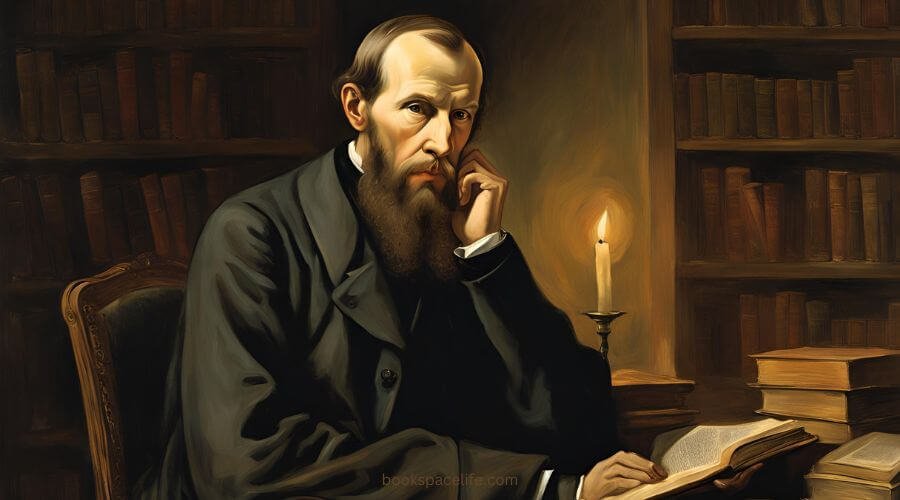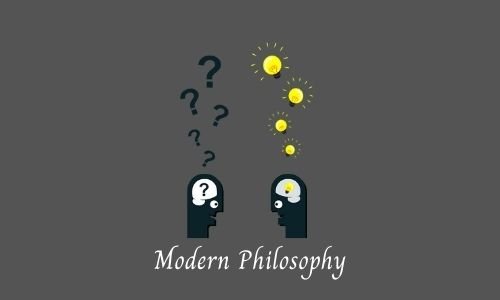Philo of Alexandria
Fyodor Dostoevsky: A Philosopher of the Human Soul
Fyodor Dostoevsky (1821 – 1881 CE) is one of the most profound and influential writers and philosophers in the history of literature.
A man whose works delve into the deepest recesses of the human soul, Dostoevsky’s novels explore themes such as morality, free will, faith, suffering, and the nature of evil.
Though he is widely regarded as one of the greatest novelists of all time, his intellectual and philosophical contributions to existentialism, psychology, and theology have left a far-reaching legacy, cementing his place as a philosopher of the human condition.
Born into a tumultuous time in Russian history, Dostoevsky’s life was marked by suffering, ideological conflict, and spiritual transformation.
His works explore the tension between reason and faith, individuality and society, and freedom and responsibility, offering readers deep insights into the complexity of human existence.
Dostoevsky’s impact has stretched far beyond literature, shaping philosophical discourse, theological discussions, and psychological theory for generations.
Table of Contents
(1) Early Life and Education
Fyodor Mikhailovich Dostoevsky was born on November 11, 1821, in Moscow, Russia, to a family of modest means.
His father, Mikhail Dostoevsky, was a retired military officer who ran a hospital for the poor. Dostoevsky’s mother, Maria Fedorovna, was a deeply religious woman who exerted a strong moral influence on him during his childhood.
Dostoevsky’s family was devoutly Orthodox Christian, and religion played a central role in his upbringing.
However, this early life was far from idyllic. In 1839, when Dostoevsky was just 18, his mother died, and his father, a cruel and domineering figure, was murdered by his own serfs, an event that would haunt Dostoevsky for the rest of his life.
This tragic backdrop shaped much of his philosophical and psychological exploration in later years.
Dostoevsky attended the prestigious Military Engineering Academy in St. Petersburg, where he trained as a military engineer.
Despite his formal education in engineering, he was more drawn to literature and the intellectual life. While at the academy, Dostoevsky read widely in philosophy, literature, and theology.
He was particularly influenced by the works of the French philosophers of the Enlightenment, such as Rousseau and Voltaire, as well as German philosophy, including the ideas of Immanuel Kant and Georg Wilhelm Friedrich Hegel.
Though his formal education was technical, Dostoevsky’s personal interests aligned with literature, philosophy, and the human psyche, setting the stage for his future as a writer and thinker.
(2) Early Career and Imprisonment
Dostoevsky’s early career was marked by a series of personal tragedies, political involvement, and imprisonment, which would profoundly shape his later works.
In 1846, Dostoevsky published his first novel, Poor Folk, which garnered some attention, but his career took a dramatic turn in 1849 when he was arrested for his involvement with a group of radical intellectuals known as the Petrashevsky Circle.
The group was accused of plotting against the tsarist government, and Dostoevsky was sentenced to death.
However, in one of the most harrowing moments of his life, the sentence was commuted at the last minute to a term of hard labor in Siberia.
This close brush with death profoundly impacted Dostoevsky’s philosophy and worldview, especially regarding the nature of human suffering, redemption, and the meaning of life.
His time in prison was a defining period in his life, where he experienced the horrors of human cruelty, isolation, and spiritual transformation.
During his years in Siberia, Dostoevsky not only endured the harsh realities of forced labor but also experienced a profound religious and intellectual awakening, turning towards Orthodox Christianity as a source of solace and hope.
Following his release in 1854, Dostoevsky returned to St. Petersburg, where he began writing prolifically.
His experiences in prison, combined with his growing faith, shaped much of his subsequent work. Dostoevsky’s writings became more focused on themes of existential suffering, the search for meaning, and the quest for spiritual redemption.
(3) Dostoevsky’s Philosophy and Major Works
Dostoevsky’s philosophy is deeply intertwined with his literary works, making it difficult to separate his ideas from his novels.
His writings are a profound exploration of the complexities of the human soul, focusing on themes such as free will, morality, the existence of evil, and the role of faith.
In many of his novels, Dostoevsky portrays characters who struggle with the meaning of life and the conflict between their desires, ideals, and moral compass.
One of Dostoevsky’s key philosophical ideas was the concept of “freedom”. He believed that human beings are uniquely free to make choices, and that this freedom is both a blessing and a curse. In novels like The Brothers Karamazov and Crime and Punishment, Dostoevsky examines how this freedom often leads individuals to moral dilemmas, anxiety, and a confrontation with the possibility of evil.
He suggests that humans are capable of both profound goodness and unspeakable evil, and that the responsibility of free will leads to existential suffering.
In Crime and Punishment (1866), perhaps one of his most famous works, Dostoevsky explores the nature of crime, guilt, and punishment through the character of Rodion Raskolnikov, a young student who commits murder in an attempt to prove his intellectual superiority.
As the story unfolds, Raskolnikov grapples with the psychological and moral consequences of his actions, ultimately facing a profound spiritual crisis.
Dostoevsky uses Raskolnikov’s journey to probe questions about human nature, the possibility of redemption, and the role of suffering in spiritual awakening.
Through Raskolnikov, Dostoevsky explores the tension between reason and faith, highlighting the limitations of human intellect in understanding the full scope of morality and human existence.
Another key work, The Brothers Karamazov (1880), is often regarded as Dostoevsky’s magnum opus. In this novel, Dostoevsky tackles the problem of evil and the existence of God.
The book presents the contrasting views of three brothers—Alyosha, Ivan, and Dmitri—on the nature of faith, reason, and human suffering.
Ivan’s famous “Rebellion” monologue questions the justice of a world filled with suffering, especially the suffering of innocent children.
Alyosha, on the other hand, represents the voice of faith and spiritual redemption.
Through these characters, Dostoevsky explores the tension between doubt and belief, the existence of evil, and the possibility of divine love and grace.
In Notes from Underground (1864), Dostoevsky presents a deeply cynical and introspective narrator who rejects both rationalism and utopian ideals.
The work is a critique of the Enlightenment and the idea that human progress can be achieved solely through reason.
The narrator’s rejection of society and isolation from others illustrates Dostoevsky’s belief in the complexity and depth of human nature, which cannot be reduced to mere logic or social convention.
(4) Influence and Impact
Dostoevsky’s impact on philosophy, literature, and psychology is vast and multifaceted.
He is often regarded as a forerunner of existentialism and has profoundly influenced thinkers such as Jean-Paul Sartre, Friedrich Nietzsche, and Martin Heidegger.
His exploration of the human condition, free will, and the meaning of suffering resonates with the themes that would later be central to existentialist thought.
Philosophically, Dostoevsky’s works challenged the idea that human beings are rational creatures capable of understanding all aspects of existence.
His belief in the irrational, unpredictable, and often chaotic nature of human life makes him an important precursor to existential philosophy.
His characters’ struggles with moral choice, their attempts to understand the meaning of suffering, and their quest for spiritual redemption also deeply influenced the development of existentialist thought in the 20th century.
Psychologically, Dostoevsky’s portrayal of human suffering, guilt, and moral conflict was groundbreaking.
His insights into the human psyche—especially his exploration of mental illness, spiritual crisis, and the destructive effects of isolation—have been acknowledged by modern psychologists and psychiatrists.
Dostoevsky’s works have been studied by figures like Sigmund Freud and Carl Jung, who found in his characters’ struggles a rich source of material for understanding human behavior and unconscious desires.
Moreover, Dostoevsky’s contributions to Christian theology, particularly his exploration of faith, redemption, and the existence of evil, have made him an important figure in religious thought.
His emphasis on the tension between reason and faith, and his portrayal of characters who must confront the depths of their own sinfulness and the possibility of divine grace, continues to inspire theologians and spiritual seekers alike.
(5) Conclusion
Fyodor Dostoevsky’s life and work offer a profound exploration of the complexity of the human soul.
Through his novels, he delved into the deepest questions about morality, freedom, faith, and the meaning of suffering, producing a body of work that continues to resonate with readers, philosophers, theologians, and psychologists today.
His existential insights into the human condition have made him a towering figure in both literature and philosophy, and his influence remains as potent as ever.
Dostoevsky’s exploration of the tension between rationality and faith, his focus on the consequences of free will, and his investigation of the possibility of redemption through suffering offer an invaluable lens through which to examine the complexities of human existence.
His works continue to offer a powerful reflection on the eternal struggle between good and evil, doubt and belief, and the search for meaning in a world that often seems indifferent to human suffering.
In the end, Dostoevsky’s legacy as a philosopher of the human soul is one that will endure for generations to come.








